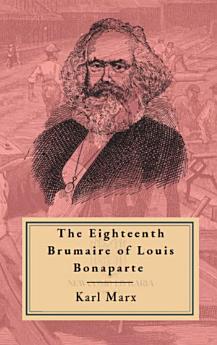The Eighteenth Brumaire of Louis Bonaparte
About this ebook
The text moves between caustic satire and analytical precision, portraying Louis Bonaparte as a political nonentity who embodies the contradictions of a fragmented bourgeois order. His rise is explained not by his strength, but by the decomposition of class alliances, the paralysis of parliamentary liberalism, and the mystification of political representation itself. In laying bare how the peasantry, petty bourgeoisie, and lumpenproletariat could be mobilized behind a hollow symbol of authority, Marx introduces a dark metaphysics of politics, in which ideology operates not merely as illusion but as real abstraction—constituting social reality by concealing its origins. The work's structure—rich in irony, recursive in its narrative, and dialectical in its logic—makes it one of Marx’s most literary and philosophically loaded texts, where the grotesque theatricality of modern power becomes both symptom and outcome of deeper historical contradictions.
This modern Critical Reader’s Edition includes an illuminating afterword tracing Marx’s intellectual relationships with revolutionary thinkers and philosophers (including Hegel, Feuerbach, Engels, and Ricardo), containing unique research into his ideological development and economic-metaphysical theories, a comprehensive timeline of his life and works, a glossary of Marxist terminology, and a detailed index of all of Marx’s writings. This professional translation renders Marx’s dense, dialectical prose into modern language to preserve the original force and precision of the text. Combined with the scholarly amplifying material, this edition is an indispensable exploration of Marx’s classic works and his enduring Hegelian-Protestant influence in the political, religious, economic, and philosophical spheres.










